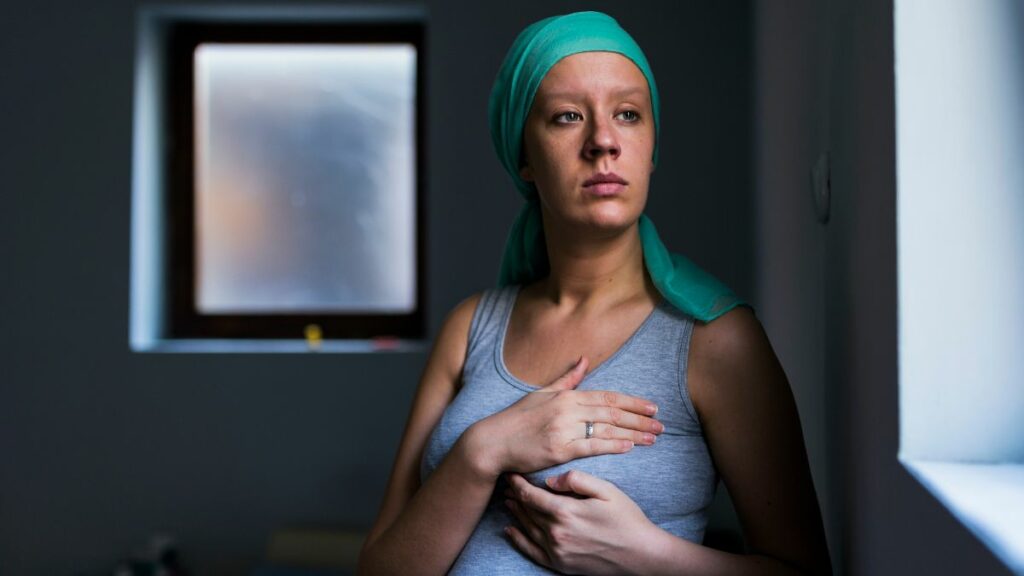October is the International Breast Cancer Awareness Month, and newspapers these days often feature articles about this topic. One of them spoke about a less visible side of life after surgery – the intimate life of women.
Namely, Sharon Bober, a psychologist and director of the Dana-Farber Cancer Institute’s sexual health program, says that when talking about this issue, the heightened focus is mostly on the visual, i.e. concerns about how reconstructed breasts will look outside of clothes or how the partner will react.
She added that the process entails some physiological changes too: “Because of the genito-urinary symptoms of menopause, sex … can quickly become uncomfortable or even painful.”
We live in a time of contradictions when, apparently, it is quite common to read one newspaper article about such distressing consequences of a serious disease to some parts of our lives and bodies which we take for granted, and which are an integral part of our female nature and physiognomy, and at the same time read another piece about some other doctors who promise young people that the usual pains of growing up and searching for your “authentic self” will be resolved through those same treatments that bring irreversible changes into the lives of breast cancer survivors.
A woman who has lost her breasts to this horrible disease – though grateful to be alive – must live with this loss for the rest of her life, as well as with the knowledge that such an important and visible part of her femininity is gone forever. If she decides to do a reconstruction, she will encounter another set of problems, as Bober said – what will the new breasts look line, how will this affect her intimate life, etc.
Simultaneously, in the parallel world of transgenderism, after only two or three sessions with a psychologist or a gender specialist, young girls are sent to top surgery to have their healthy breasts removed, with the words, “If you want your breasts back some day, just go and get them!” as if this is no more than buying a new dress or changing your hair style.
Women who entered early menopause as a side effect of the cancer treatment are faced with various difficulties in terms of their intimate relations. Yet, after only one session with the “specialist”, some other girls are prescribed puberty blockers which literally put their body in early menopause.
Is a 13–15 year old girl capable of comprehending all of the unwanted side effects of such treatments? Can she understand what it means to give up sexual pleasure before she has even had a chance to experience it (which is often the case with gender dysphoric youth)? Is she capable of grasping what it means to live with geriatric genito-urinary symptoms of menopause?
Teens in the USA are not allowed to get a tattoo without parental consent, young people below 21 years of age are not deemed fit to rent a car as they pose an increased risk for the insurance company since their frontal lobe does not fully mature until well into their 20s which means that young people in that age group are physiologically unable to make rational decisions in every moment of their life – but they are allowed, without parental consent or knowledge, to take drugs that inhibit the natural onset of puberty, to take cross-sex hormones that give them the desired outward characteristics of the opposite sex, to make the social transition (change their name, pronouns, the way they dress and behave…), and then the full medical transition as well (surgically change their sex).
How can we explain or make sense of this contradiction – while cancer survivors must learn to live with the consequences of being treated from a deadly disease, grateful to be alive in the first place, healthy girls are rushed into treatments that result in identical or similar consequences, all in the name of the right to self-identification and conforming one’s inner and deeply subjective perception of self with the body you are born in.
When we are overwhelmed with problems and see no way out of a difficult situation, we often say that you can’t run from yourself. Women who have survived cancer can’t get out of their own skin no matter how hard they may want to replace the old, damaged body with a new one, or at least have their own body back, only without the disease. When treating young people who are confused with their identity, doctors are obligated to help them accept their body, and not change it beyond recognition, because even if they succeed in that, they still won’t be able to get out of their own skin or to run from themselves.
